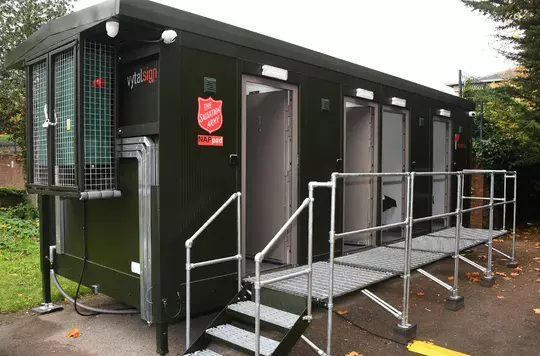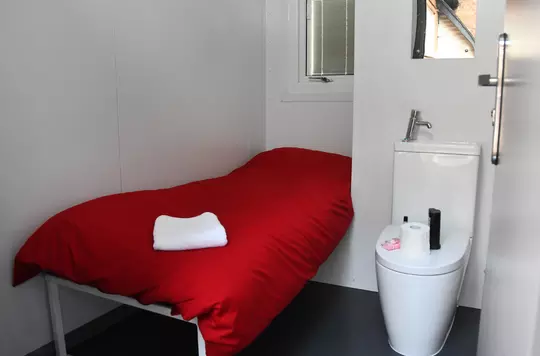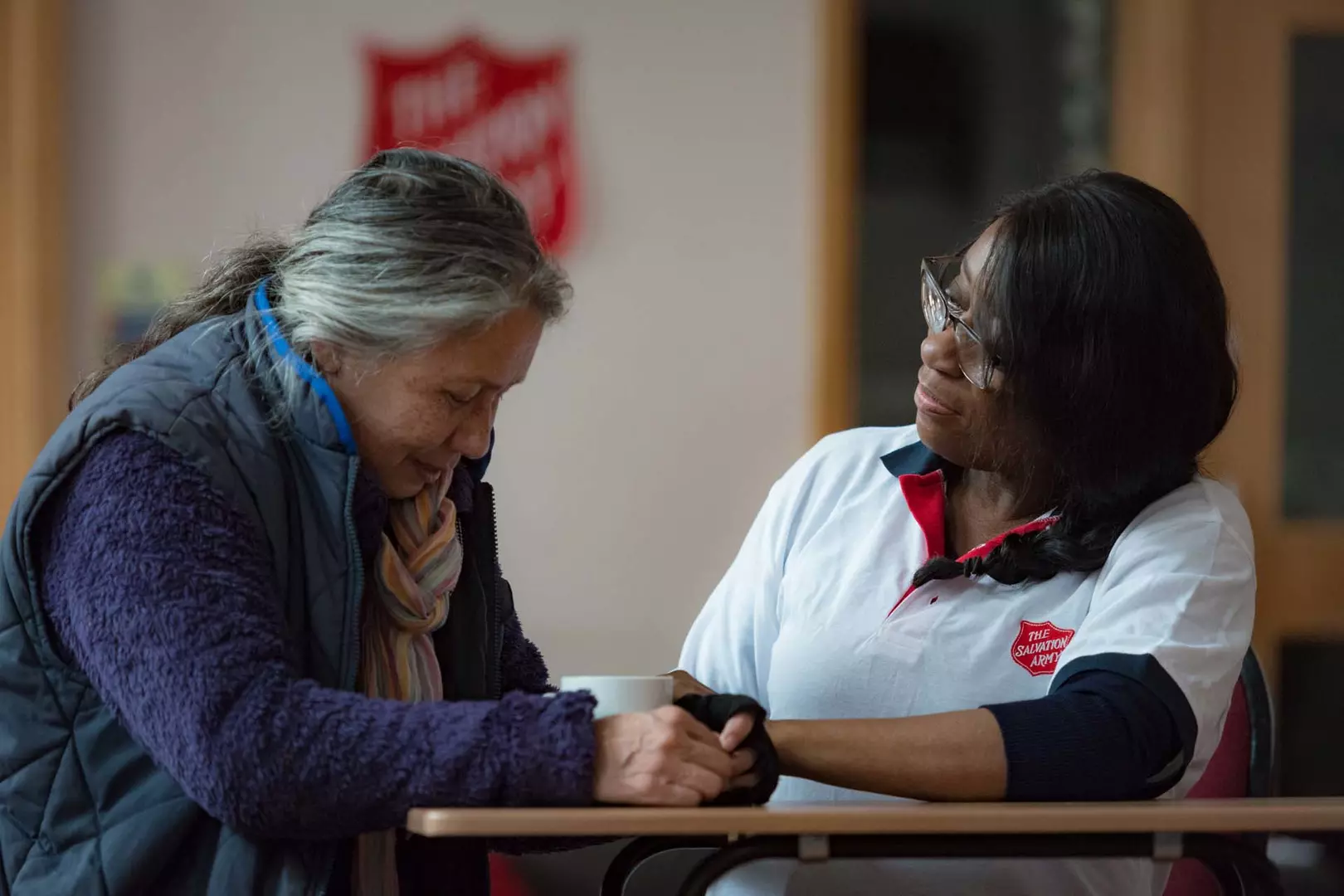'NAPpad' pilot that keeps rough sleepers safe proves vital
published on 7 Sep 2022

A pilot scheme providing innovative pop-up accommodation for rough sleepers which helps keep them safe by tracking their breathing has supported more than 30 people to stay off the streets.
The NAPpad (Night-time Accommodation Project) uses microwave technology to ensure rough sleepers seeking shelter are safe. The Salvation Army teamed up with Protectal Ltd to design the accommodation, which is being piloted on land owned by City of York Council.
Launched in November, the NAPpad is 20 foot by eight foot with four individual units. Each is self-contained with toilet and wash facilities, a security door, window, power point, is lined with insulation panels and equipped with a small electric heater and LED light.
Amber Sylvester, Development Manager with The Salvation Army’s Homelessness Services Unit, said: “The pilot has been more successful than we could have imagined. The NAPpad, which offers rough sleepers somewhere quiet, warm and safe to stay, has been full most nights and the feedback we’re getting from clients has been really positive.
“It’s been an invaluable part of the provision in York, offering a quarter of the beds as part of the severe weather emergency protocol (SWEP) which provides accommodation when temperatures drop below a certain level.
“We envisaged them being used by entrenched rough sleepers who struggle in traditional hostel environments. We’ve not only been able to help them, but also offer beds to people who may have no recourse to public funds*, have been sofa surfing or due to relationship or family breakdown have had nowhere to stay. As part of our ‘trauma-informed’ approach, they provide dignified sanctuary from the streets for people who may be suffering from mental health issues.”

The church and charity recently published new research showing that the number of homeless people with mental health and addiction problems has increased while funding for treatment and support has been cut.
Of the 31 people supported into the NAPpad, some who were sleeping on the streets or would have been, were waiting for private accommodation or had been unable to access traditional hostels or resettlement services, 79 per cent were suffering with mental health issues.
Amber added: “Part of The Salvation Army’s approach is to not only to provide a warm place for somebody to sleep. Tackling homelessness is more than offering shelter, it is helping people to move on from the reasons they were forced to sleep on the streets in the first place such as poor mental health, addiction, relationship breakdown and job loss.”
For Adam, 42, who had been homeless on and off for four years due to mental health issues, the NAPpad has proven vital.
Adam (not his real name) said: “I struggle to live in a home or shared accommodation, I prefer to be outside. I have mental health issues which I’ve never really dealt with and I find it easier to escape and come outside, but with the NAPpad I have a safe space to stay, I’m on my own, which is how I like it, and I have the freedom to stay outside if I want to. I don’t have the worry and panic about being inside a hostel or shared accommodation.
“Without the NAPpad I would be on the streets permanently, it’s not so bad during the summer, but it’s much harder in winter. If I haven’t got the NAPpad then I’ll be back out under a bush.”
One of the things that makes the NAPpad unique is they are fitted with non-invasive ‘vital life signs’ sensors sensitive enough to detect whether someone has stopped breathing so emergency services can be alerted, giving responders vital minutes to save a life. The vytalsigns sensors are based on technology used to combat sudden infant death syndrome (SIDS).
Protectal co-founder Pete Wood said: “This project had been in the making for a number of years and we’ve worked hard to try and provide something that offers not only dignity to people using them, but help manage their potential risks.
“To see the NAPpad working as intended and helping so many people, it’s fantastic. We’re looking forward to taking this project even further and seeing how we can help even more people.”
The NAPpad has had the support of local agencies including charity Kitchen for Everyone, who have provided vouchers for NAPpad users to use at a local café.
The Salvation Army and Protectal are now looking at other locations which might benefit.
Referrals can be made via the York EIP hub at 63 Lawrence Street between 10am and noon Mondays to Fridays, or through referral agencies. Support is offered by the York Outreach Team led by Charlie Malarkey.
*No recourse to public funds is a condition applied to some migrants in the UK which means they cannot access certain benefits
